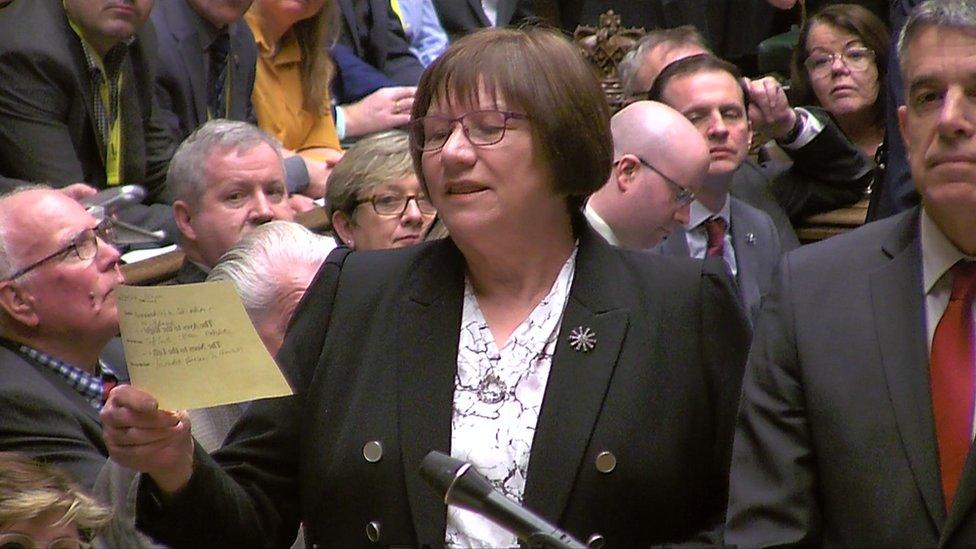Brexit: May loses more ministers and more control
- Published

Theresa May has lost more ministers to Brexit, and more importantly perhaps, has lost even more control of the process at a time when her government is only just about holding on.
Sir Oliver Letwin's plan passed through the Commons tonight by a clearer margin than expected, a big win for the cross-party group of senior MPs who have been pushing plans of different flavours for a while that would allow Parliament to have more say over what's next.
Officially, what the proposal that won tonight does is give MPs control of the debates in the Commons for a day on Wednesday. They will use that to have a series of votes on different options.
This is exactly what some government ministers wanted and have been arguing for for ages.
But those ministers were opposed by their colleagues sitting round the same top table, who fought the idea from the start.
That's because they fear, as the prime minister does, that allowing the process to go forward cedes what little control they have left and potentially moves Parliament towards choosing a softer Brexit.
Now MPs have won the right to carry out this unusual process, there will be a series of votes in the Commons on Wednesday, where MPs will be able to have their say on a whole range of options - a customs union, a closer relationship with the EU than the PM has argued for, another referendum, and others which could emerge.
But it's important to note those votes won't at this stage force the government to do anything, they won't be binding, and the prime minister has indicated she could not, and would not ever support a plan that wasn't in the Conservative manifesto.
On the other side, MPs involved in the bid tonight say if there is a majority for a plan that's not the prime minister's deal then there would be "uproar" if Theresa May tried to ignore it.
It is possible, of course, that Brexiteers who have been resisting the prime minister's deal so far, take fright at Parliament having more control of the process, and are more likely to come in line. That's because generally, the make-up of MPs are more likely to back a softer deal than the one on offer.
So faced with the choice of Theresa May's compromise this week, or a much longer wrangle to a closer relationship with the EU than the prime minister has negotiated, it is not impossible that the numbers will move in her favour.
But with more former Remainers willing to make their voices heard now in Parliament, the prime minister's battle with her party could get even more intense.
Tonight could be the official start of a journey to a softer Brexit led by a majority in Parliament, Brexiteers beginning to back down in earnest, or the start of the next stage of a standoff between the government and Parliament that could only end with a 'democratic event' - code in Whitehall for what you and I would normally call an election.